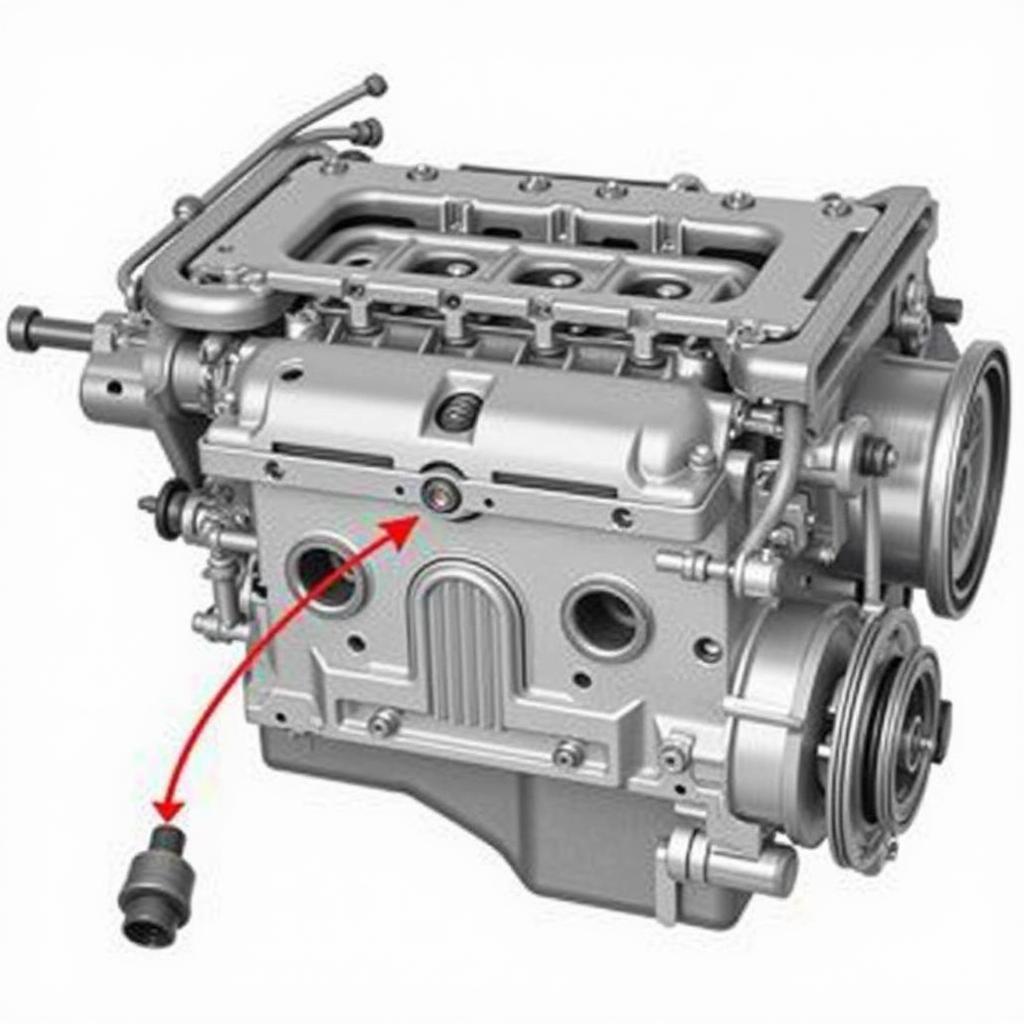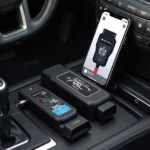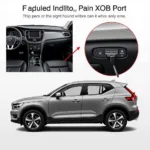The dreaded check engine light has illuminated your Hyundai’s dashboard, and after connecting your OBD2 scanner, you’re greeted by the cryptic code P1326. Don’t panic! This code, indicating a “Knock Sensor Performance (Bank 1)” issue, is relatively common in Hyundai vehicles and, with a little knowledge, you can understand its implications and potential solutions.
What Does a Knock Sensor Do?
Before we delve into the specifics of the P1326 code, let’s understand the crucial role played by your Hyundai’s knock sensor. In essence, this small but mighty sensor acts as your engine’s “ears,” constantly listening for the telltale sounds of engine knocking or detonation.
Engine knocking occurs when the air-fuel mixture in your engine’s cylinders ignites unevenly or prematurely. Instead of a smooth, controlled burn, the mixture explodes violently, producing a distinctive knocking or pinging sound. This uncontrolled combustion can lead to significant engine damage if left unchecked.
The knock sensor, strategically positioned on the engine block (Bank 1 refers to the side of the engine containing cylinder #1), detects these abnormal vibrations. It then transmits this information to the Engine Control Module (ECM), the brain of your Hyundai’s engine management system.
Decoding the P1326 Code: What’s Going On?
When your OBD2 scanner displays the P1326 code, it means the ECM has detected a problem with the performance of the knock sensor circuit on Bank 1. This doesn’t necessarily mean the sensor itself is faulty. The issue could stem from various factors, including:
- Faulty Knock Sensor: The sensor itself might be damaged or worn out, failing to accurately detect engine knocking.
- Wiring Problems: Damaged, corroded, or loose wiring connections between the knock sensor and the ECM can disrupt signal transmission.
- ECM Issues: In rare cases, the problem might lie with the ECM itself, hindering its ability to process signals from the knock sensor.
- Poor Fuel Quality: Using low-octane fuel can lead to engine knocking and trigger the P1326 code.
Common Symptoms of a P1326 Code
While the illuminated check engine light is the most obvious indicator, you might also experience other symptoms if your Hyundai is grappling with the P1326 code:
- Engine Knocking or Pinging: Particularly noticeable during acceleration or under heavy load.
- Decreased Fuel Economy: As the ECM adjusts engine timing to compensate for potential knocking, fuel efficiency can suffer.
- Reduced Engine Performance: The ECM might retard ignition timing to prevent knocking, leading to a noticeable loss in power.
Troubleshooting and Resolving the P1326 Code
Before rushing to a mechanic, you can try some basic troubleshooting steps to potentially pinpoint the source of the problem:
- Check Your Gas: Ensure you’re using the recommended octane rating for your Hyundai. Switching to a higher octane fuel might temporarily alleviate knocking if poor fuel quality is the culprit.
- Inspect the Knock Sensor: Locate the knock sensor on your engine block and visually inspect it for any obvious damage, cracks, or loose connections.
- Examine Wiring and Connectors: Carefully check the wiring harness leading to the knock sensor for signs of fraying, cuts, or corrosion. Ensure the connectors are securely fastened.
“When diagnosing a P1326 code, it’s essential to rule out the simple things first. A visual inspection of the knock sensor and its wiring can save you time and potentially avoid unnecessary repairs.” – Michael Carter, ASE Certified Master Technician
If these initial checks don’t reveal the problem, it’s best to consult a qualified mechanic with experience in diagnosing and repairing Hyundai vehicles. They will have the necessary diagnostic tools and expertise to:
- Test the Knock Sensor: Verify the sensor’s functionality using a multimeter or specialized diagnostic equipment.
- Inspect the ECM: Rule out any issues with the Engine Control Module through advanced diagnostics.
- Perform Necessary Repairs: Replace a faulty knock sensor, repair or replace damaged wiring, or address any other underlying issues.
Don’t Ignore the P1326: Protect Your Hyundai’s Heart
While the P1326 code might seem like a minor inconvenience, ignoring it can have serious consequences. Prolonged engine knocking can lead to:
- Damaged Pistons: The intense heat and pressure generated by detonation can damage the pistons, potentially leading to engine failure.
- Worn Cylinder Walls: Repeated knocking can erode the cylinder walls, reducing engine compression and performance.
- Damaged Spark Plugs: The extreme conditions caused by knocking can shorten the lifespan of your spark plugs.
Addressing the P1326 code promptly will not only restore your Hyundai’s performance and fuel efficiency but also protect your engine from potentially catastrophic damage. By understanding the role of the knock sensor, the implications of the code, and the necessary troubleshooting steps, you can ensure your Hyundai’s engine continues to run smoothly for miles to come.
FAQ:
- Can I drive my car with a P1326 code? While you might be able to drive short distances, it’s not recommended. Driving with a persistent P1326 code can lead to engine damage.
- How much does it cost to fix a P1326 code? The cost can vary depending on the root cause and labor rates. Replacing a knock sensor typically ranges from $150 to $400, while addressing wiring issues might be less expensive.
- Can I replace the knock sensor myself? If you have some mechanical experience, you might be able to replace the sensor yourself. However, it’s recommended to consult a repair manual or seek professional assistance for a proper diagnosis and repair.
Need Further Assistance?
For personalized guidance and support with your Hyundai’s OBD2 codes, feel free to reach out to our team of automotive experts. We’re available 24/7 via WhatsApp at +1(641)206-8880 or email us at [email protected]. Let us help you keep your Hyundai running smoothly and efficiently!


